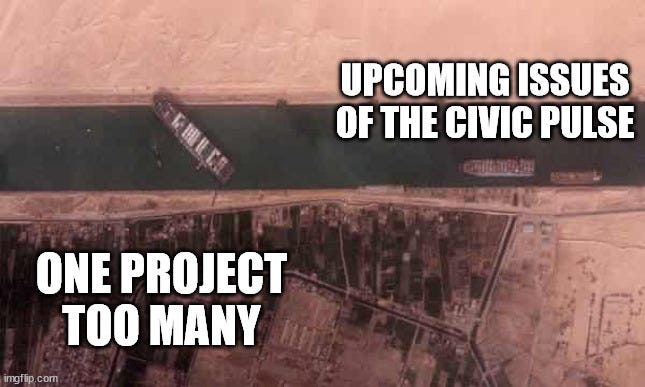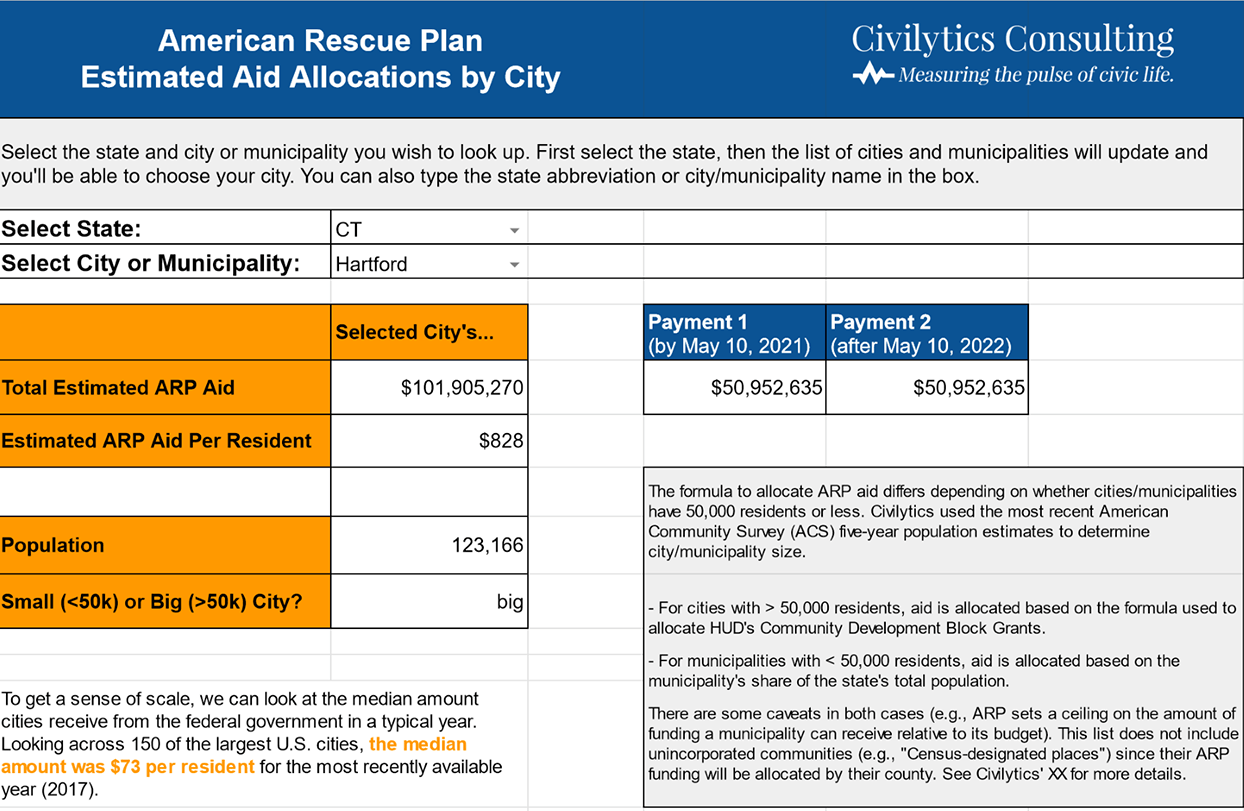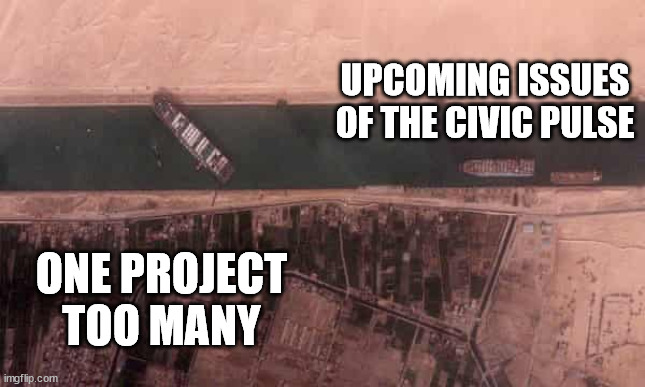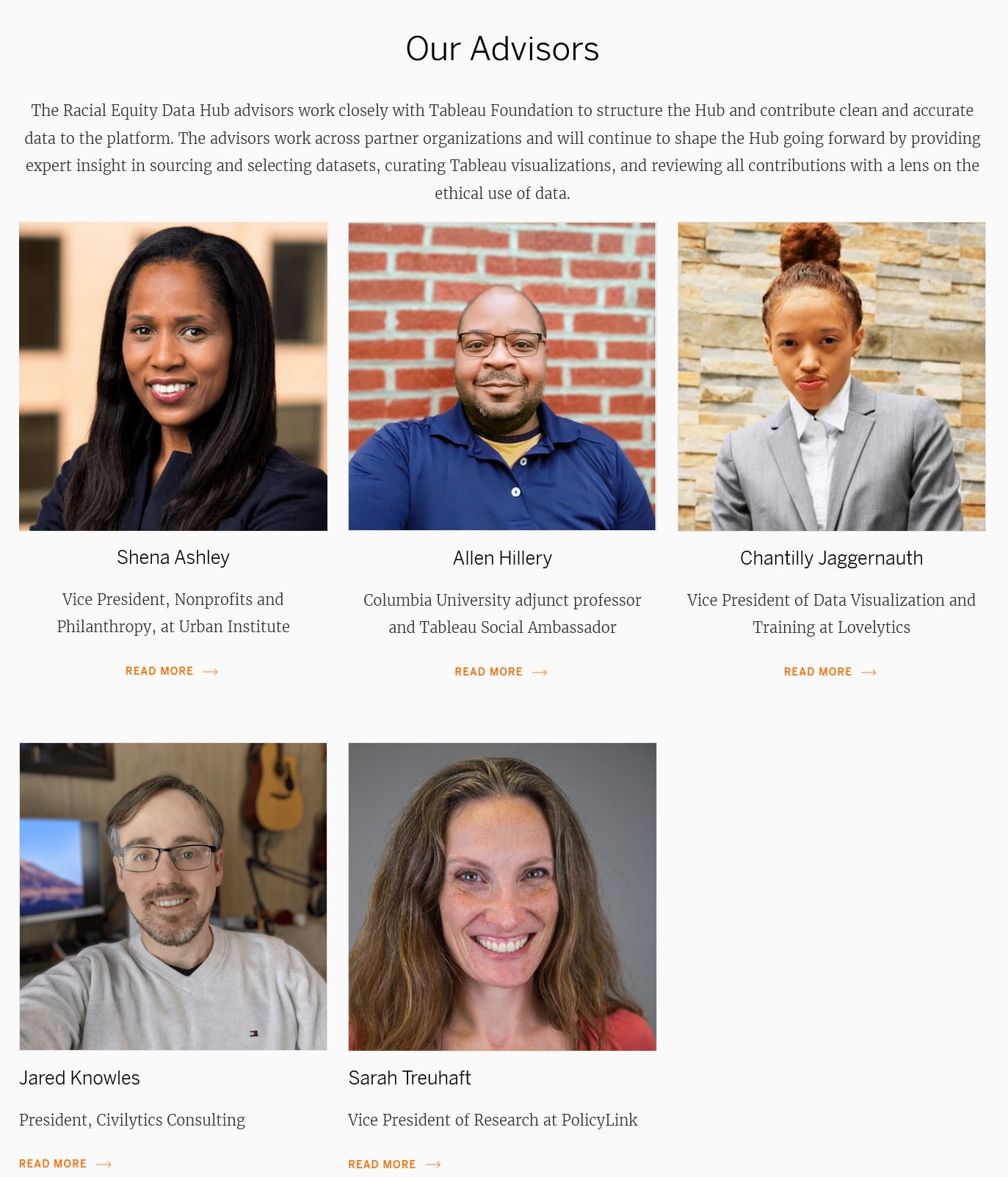And we’re back…
In our last newsletter I promised a “coming next” follow-up…but instead, we just dove head first into 2021. We’ve been working on a lot of inspiring, big, new projects and are excited to share what we’re learning with all of you.

In 2021 you can expect to hear from us about:
- The facts and data we learn about in our work that are changing how we see the world
- The dynamic fiscal conditions cities, counties, and states face this budget season and how it impacts you as a resident!
- National data sources and efforts to raise awareness about the impacts of structural racism across the United States
- New visions of public safety and how together we can recalibrate what it means to be safe in our homes, in our communities, and with one another
- Spotlights on community organizations doing the work of building a safer tomorrow and doing the research to find strategies that really work
- And much much more
In this edition you’ll find:
- Civilytics publishes American Rescue Plan aid estimates for all local governments
- Introducing the Racial Equity Data Hub, an exciting new project from Tableau
- Civilytics announces its first hire
- A roundup of what we’ve been reading and thinking about lately
American Rescue Plan Act Local Aid Estimates
The American Rescue Plan Act (ARPA) was signed into law by President Biden on March 11, 2021. ARPA provides $1.9 trillion in economic relief through direct payments (stimulus checks), expanded child tax credits and unemployment benefits, small business loans, and aid to local and state governments.
ARPA allocates $350 billion in aid for state and local governments. This is in addition to the aid previously allocated under prior coronavirus relief efforts (the CARES Act and the Coronavirus Response and Relief Supplemental Appropriations Act). Unlike aid in the previous supplemental act, aid in ARPA is largely unrestricted.
This is a serious amount of funding that will be part of your community budget until 2024. Most communities will receive around $200 per resident at both the county and the town/city level.
We encourage you to participate in reimagining how your community can use these funds to build a safer, stronger, more resilient future. Some interesting possibilities for these funds include:
- Eviction protection and water and housing debt payoffs for all unpaid bills in your community
- Building and funding free community broadband
- Grants to all local employers employing grocery workers and other essential workers to give bonus pay for work during the past year
- Supporting and growing violence prevention programs run by local non-profits that defuse neighborhood conflicts before they become dangerous
We’ll be sharing more ideas we come across in a future newsletter – and we’d love to hear yours. Reply and let us know what you’d like to see your community invest in.

Introducing the Racial Equity Data Hub
I’m excited to be one of five inaugural advisors for the Racial Equity Data Hub, a new initiative led by the Tableau Foundation. If you know me and my passion for R, then you know that it must be a really amazing project if I’m teaming up with Tableau, and it is!
The Racial Equity Data Hub is an ambitious and exciting new initiative that has great potential to advance the use of data to empower communities across the country – which happens to be Civilytics’ mission. From the website:
Tableau Foundation is hosting the Racial Equity Data Hub to share insights from leading experts at the intersection of data and equity issues, and to inspire anyone to effectively and ethically use data to advocate for change.
In addition to being an advisor to the Hub, Civilytics will also provide data, analytics, and design guidance to support the Hub’s four core focus areas:
- Achieving Equitable Education
- Advancing Equitable Justice
- Building Economic Power
- Building Political Power
Our first big contributions will be around the Civil Rights Data Collection (CRDC) and the FBI’s arrest data but more is in the works in the coming months.
Learn more about this exciting project by reading the introductory blog post by Channing Nesbitt that describes the Hub.
Visit it today: Racial Equity Data Hub. And stay tuned for updates throughout 2021.
Civilytics is growing
Civilytics is proud to introduce our first ever hire – Dr. Hannah Miller.
Dr. Miller brings ten years of experience in data analysis, research technical assistance, and program evaluation to Civilytics. She previously worked as a project director and researcher for Abt Associates, where she led multiple federally-funded contracts and conducted research for the U.S. Department of Education, U.S. Department of Health and Human Services, Consumer Financial Protection Bureau, and other clients. Her work included randomized controlled trials, quasi-experimental studies, and descriptive and implementation studies.
Dr. Miller completed her PhD in sociology at the University of Wisconsin-Madison where she worked for the Institute for Research on Poverty and Wisconsin Center for Education Research.
She’s an avid consumer of baked goods…and TV….and loves swapping tips on must-experience bakeries, restaurants, and streaming content.
Please join me in welcoming Hannah to Civilytics! As many of you know, I also happen to be married to Hannah and could not be happier that she has signed on to the work of Civilytics. Working together has been something we hoped could happen someday and instead of writing a paper together, we’ve gone all-in and share a home office!
This means Civilytics has more capacity to support clients, especially in the education space!
What we’re reading
I am reading pieces of this excellent guidebook from Chicago Beyond every week. It challenged my training as a social scientist, broadened my horizons as an advocate for evidence, and pushed me to imagine new and better ways to collaborate with community organizers to produce knowledge.
Prisoner access to vaccines is uneven and not easy to track
This NYT article captures a lot of what I’m hearing from community organizers I’m working with about uneven access to the vaccine in some of the most vulnerable places.
The Racial Geography of Mass Incarceration
With the Census data getting ready to be released soon, it is always a good time to remind people that mass incarceration distorts the racial geography of America. Mass incarceration results in undercounts of the populations of many cities and overstates the diversity of rural communities that house prisons.
Every day I talk with people who have experience in building safer communities and I learn how they are being proactive about preventing violence. Now you can too, with 1M Experiments – an ever expanding list of community safety programs being used around the world.
Finally, a personal thing, but any plan to expand broadband in America that the cable lobby says they “hate” is probably the best plan we’ve had in awhile. Our broadband access, speeds, and prices are a drag on our economy, community, and lives. Let’s get that fixed too.
As always, we appreciate your help spreading the word about this newsletter. If you haven’t already, please subscribe below.
We love to hear from you! If you’ve got a project you think Civilytics can help with or a question, do get in touch.
With gratitude,
Jared




